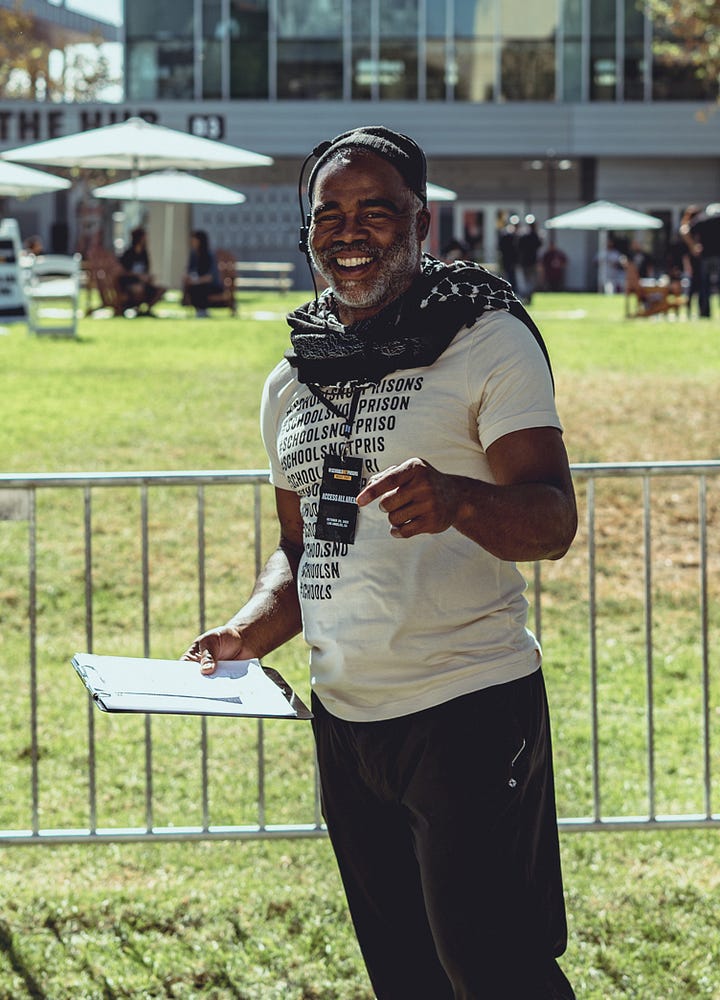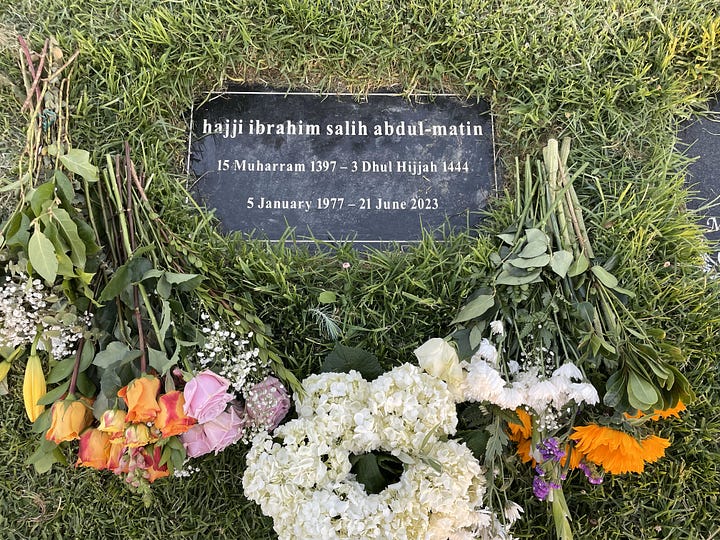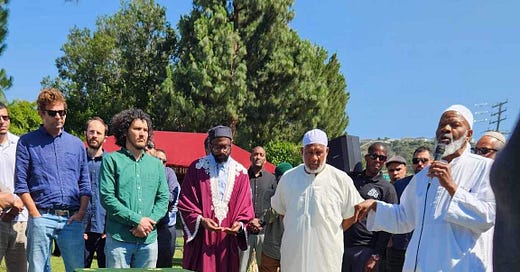Still Learning How to Love: What My Friendship With ibrahim Taught Me About Masculinity, Grief, and Love
Two years ago today, we lost our beloved ibrahim.
He passed away on the summer solstice, just days before we were supposed to get together in Los Angeles. When Fatima asked me to write this milestone blog post, I jumped at the chance. It felt like divine timing. My first book, Sacred Lessons: Teaching My Father How to Love, was released this month—and it includes an entire chapter dedicated to ibrahim. I thought this post would be simple. I thought that I could just quote a few lines from his chapter and then write about how much I miss him.
But Fatima challenged me, like she challenged ibrahim countless times before. She pushed me to say more, to go deeper, to not write something surface level, but to reflect on the silence that too many men carry. The silence that ibrahim and I carried. The kind of silence that keeps too many men from speaking our truths. The kind of silence that prevents men from saying we’re not okay. The kind of silence that prevents men from asking for help.
Ibrahim and I had a special bond, an almost karmic connection. We finished each other’s sentences, cheered each other on, and spent hours in coffee shops talking about life, love, and family. But even in that closeness, there were parts of him that I never fully knew. It brought me back to the men in my family—men like my own father who tried to power through his pain by himself. Because men are taught that sharing our struggles makes us a burden. That “real men” tough it out. That real strength means carrying it all, alone.
Ibrahim was different. He tried to change that cycle. He even wrote me a six-page handwritten letter about his struggle. But even with that vulnerability, there were things we didn’t say to each other. We wrestled with similar fears: not being good enough sons, husbands, or fathers; loyalty, trustworthiness, reliability. We shared our doubts in the silence between our words. We wanted to show up fully for our families—but we didn’t know how. We didn’t fully confide in each other because we were embarrassed that we sometimes failed at our responsibilities. Even with each other, we hid our deepest truths behind a mask. We feared being judged. We feared our own shame. And we feared truly being seen.
The conversations ibrahim and I had when he was alive shaped who I am. And, the conversations that I never had with him, I have with him today. I speak to my dear ibrahim because I know that he hears me. I know that he’s with me. And because of that, I can no longer hide. I can no longer perform. I can no longer say “I’m fine” when I’m not. Ibrahim sees me now, fully—and that truth holds me accountable.
This is the greatest lesson from my ever evolving relationship with ibrahim. That we have to trust and honor our most sacred relationships, in life and in death. We have to know and believe that our ancestors bring people into our lives for a reason. And that the most sacred promise we make to ourselves and to our maker is the vows that we make to our partners and to our loved ones.


So today, and every day, I thank the creator for blessing me and blessing all of us, with the light that is hajji ibrahim salih abdul-matin. May all of you continue your conversations with him and may they be a source of truth, honesty, and accountability.




